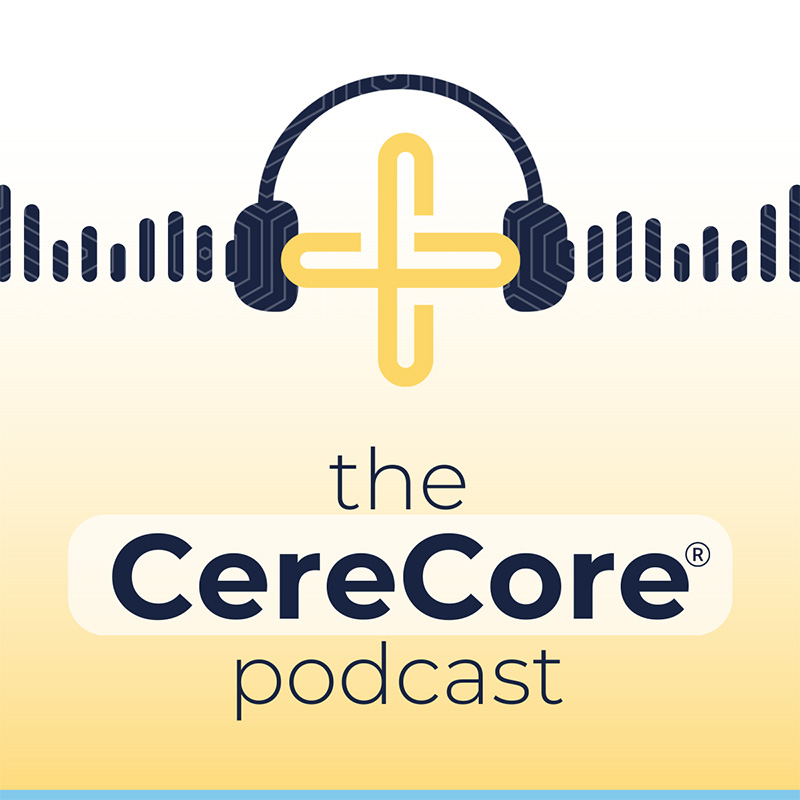

By CereCore | May 12, 2023
4 minute read Epic| Blog| IT Help Desk| Client Perspectives
Everything we do in healthcare IT has a direct correlation to patient care, especially large IT investments like EMR implementations and day-to-day operations such as the IT help desk. On The CereCore Podcast, Rick Keller, senior vice president and chief information officer for Ardent Health Services unpacked the return on investment (ROI) surrounding several decisions triggered by their move to Epic.
Host Phil Sobol, vice president of business development at CereCore, posed the questions that so many healthcare IT leaders are asked to defend:
The big EMR investment decision
Rick Keller explained that in 2016 they had to make a pivotal decision about their EMR, and the clock was ticking on a sunset date for their legacy system. "We had to get it right. We looked at the cost model and Epic really seemed to fit our needs and our growth strategy. We were able to reduce our application portfolio by over 100 applications.”
He recounted hard returns like reducing maintenance costs from four to five different EMRs across the enterprise to just one—Epic. However, those hard returns had a limited lifespan.
Physician recruitment and satisfaction
Then, they examined the return on investment in terms of physician recruitment and satisfaction. Since most medical schools were educating physicians using Epic, physician recruitment increased because they were more apt to choose organizations deploying or using Epic.
“We've really been able to maintain a high caliber, highly efficient physician workforce,” said Keller. “The other area was our ability to collect cash more quickly. We also measured our clinic throughput and physicians. How quickly can they see patients? How quickly can they move throughout their day?”
Patient engagement
More recently, Ardent has ramped up investment in MyChart, Epic’s patient portal.
"We've had an initiative over the last 12 months that came from our CEO,” Keller explained. “It is called: we need to ban the clipboard. We need to get rid of paper forms for registration and problem list and other things. So, we've had significant improvement. Year over year for the last two years, we have had an increase of well over 500,000 submissions of online questionnaires prior to the appointment.”
“We're almost at 30% for online payments via the MyChart application or mobile app. We're seeing the elimination of paper in the registration setting.”
Keller goes on to talk about how they were stuck in planning mode for telemedicine until the pandemic but fortunately they had Epic to offer to care providers and patients.
“We're trying to move as fast as life for our patients,” said Keller, “and create the connection to them long term by providing ways to schedule online. And build affinity with our patients so when they come back, we know that they've been with us before, and we can then have a lot of information that we tell them about. And then they're going ‘Oh, you remember me.’ So, it's simply creating a way for the patients to be seen.”
Support and IT help desk
However, another piece of the cost analysis puzzle that was related to the Epic implementation had to do with Ardent’s in-house help desk.
“We really stepped back and looked at the cost of managing your own helpdesk. First you have to set aside one of the biggest obstacles, which is a loss of control. Instead, let's put a partnership together where we still have equal control,” said Keller.
“A help desk is not a core competency of our IT organization. We realized it was hard to recruit, it was hard to retain, and our service wasn't stellar to begin with as we started to grow. So, that was a key point for us to first acknowledge—this isn't what we do best. Let's find someone who does.”
At that time, Ardent and CereCore were already working together. CereCore was providing legacy support for the other EMRs, which helped IT team members focus on the large Epic implementation.
Keller explained, "I think it's key to look for a partnership that you can grow together with, that you look for someone who helps improve your services, not just deliver it. Over this time, we have grown to where we share in the first call resolution metrics and satisfaction for our clinicians and users. Once you decide that it's something you really don't do well, find somebody who really does and then just work together.”
Eliminate the problem
Over the years there have been a few “aha” moments that have emerged from the help desk metrics and data analysis. For example, Ardent and CereCore have worked together to minimize and reduce the number of password resets.
“Those things that are blocking and tackling,” Keller said. “They are almost the same thing every time. How do we not just handle it very quickly but how do we eliminate the need for it?”
“We have been able to measure implementing newer PC technology due to Epic, our workstations and endpoints. We eliminated these ‘ghosts’ in the machines that kept locking out a user. The ability to measure the impact and look for root cause, and then measure the improvements—we couldn't do that on our own. And wouldn't have the ability to invest in those types of tools that show those metrics and measurements. Working with some of the metrics, we've been able to track and work together to implement things,” said Keller.
Keeping pace as a lifelong learner
The conversation wrapped up as Rick Keller shared his approach to staying current with the rapid pace of healthcare IT, developing a network of CIOs across industries, and building relationships and staying in sync with the executive leadership team at Ardent.
Listen to the podcast episode for his full answers and ideas on topics ranging from ROI to the future of telemedicine and patient engagement to practical leadership.
.png)
Subscribe to the podcast and more
Don't miss an episode of insights from healthcare IT leaders and experts. Subscribe to the podcast on Spotify or Google Play. Share what you've learned with your network, too.

CereCore® provides IT services that make it easier for you to
CereCore® provides IT services that make it easier for you to
Let us know how we can support your initiatives and take some of the heavy lifting from healthcare IT.
© All Rights Reserved CereCore Terms of Service California Notice at Collection Privacy Policy Responsible Disclosure